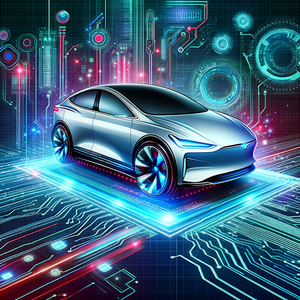More Americans are becoming increasingly unlikely to consider buying an electric vehicle (EV) for their next car purchase, according to an article by Medora Lee posted on USAToday.com, on May 8. This trend has been seen in the first three months of the year.
Lee cites a JD Power monthly EV report for this dour outlook. The report stated that in March, 21% of new-vehicle shoppers said they were “very unlikely” to consider an EV, up from 18.9% in February and 17.8% in January. Moreover, the percentage of car shoppers who are "very likely" to consider buying an EV was 26.9% in March, which remained relatively unchanged throughout the year.
According to the JD Power EV report cited by Lee, concerns about charging infrastructure and vehicle prices are continuously reducing people's enthusiasm for electric vehicles. Moreover, EV’s market share of all new-vehicle sales dropped to 7.3% in March, down from a record high of 8.5% in February but up from 2.6% in February 2020.
Persistent Challenges For EVs
According to the JD Power report, there are several reasons why people are not more interested in EVs:
- Lack of Public Charging Infrastructure - Many people lack access to public charging infrastructure, particularly in more rural areas of the country.
- Price - More expensive than comparable gas-powered cars, making them out of reach for many shoppers.
- Range Anxiety - Buyers are concerned about the range of EVs, and that they will be stranded on long trips if they cannot find charging stations.
- Time Required to Charge - People are put off by the length of time required to charge an EV compared to a few minutes at the pump for filling up with gasoline.
- Power outages/grid concerns - Some potential EV buyers are concerned about the ability of the electric grid to handle increased demand from EVs and possible power outages.
- Lack of services for repairs and maintenance - EV owners often have to drive long distances or visit specialized shops for servicing, which is inconvenient.
- Inadequate performance in extreme temperatures - The range of some EVs drops in extreme temperatures, making them unsuitable for certain climates.
The JD Power report underscores that EV pricing is especially problematic as many EVs demand higher price tags compared to their fuel-powered equivalents. One reason for this is that government subsidies, which initially boosted EV demand, through tax credits, now require hurdling confusing requirements such as pinpointing the location of where the car was built and assembled, details on the sourcing of materials needed for the EV battery, and if components for the vehicle come originated from countries that have a free trade agreement in place with the U.S.
“This new hurdle will affect the affordability of several EV models, while also likely introducing more confusion among buyers,” JD Power said. “Our data suggest that higher prices will negatively affect EV sales".


